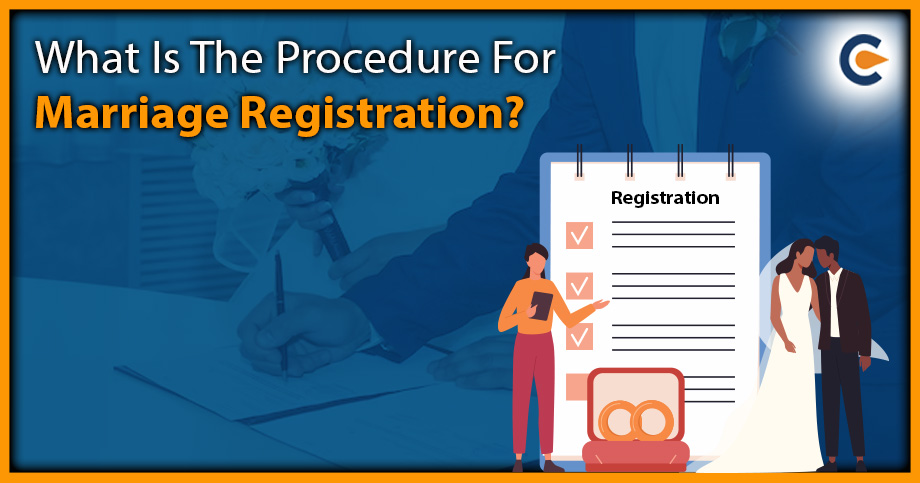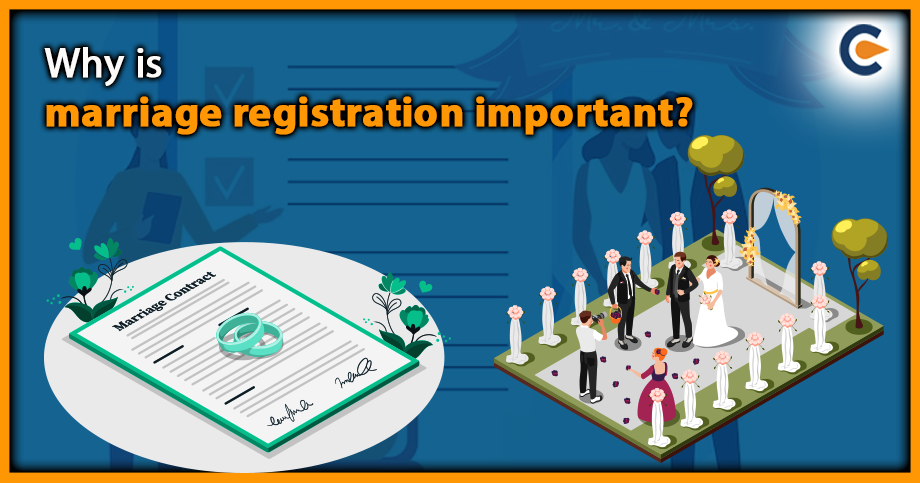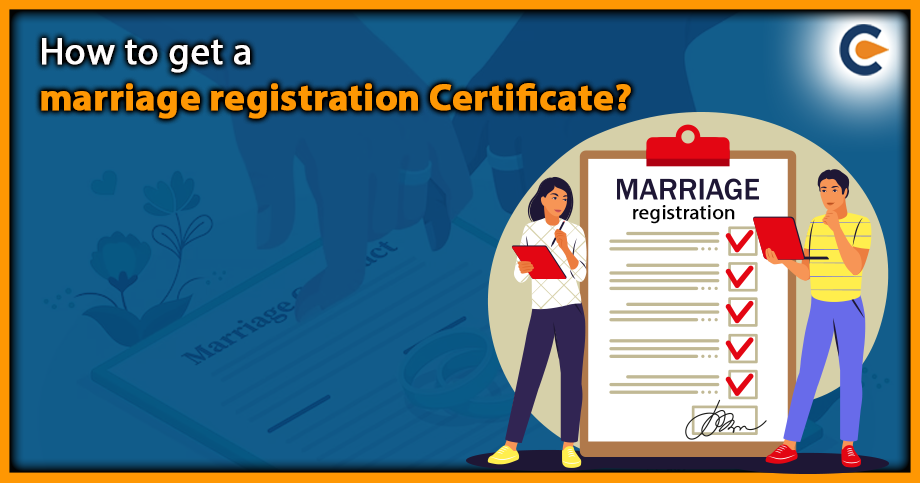In India, marriage is a socially and legally recognized relationship between two people, typically between a man and a woman, but now open to people of any gender. Marriage is regarded as a sacred institution in India and is a significant component of the nation’s culture and heritage.
In India, getting married is typically viewed as a lifelong commitment and an opportunity to establish a strong family. The customs and traditions involved in the celebration, which is typically filled with joy, depend on the faith, locale, and community of the couple getting married.
Marriage is an official contract as well, so in order to receive legal recognition, the marriage must be registered as per the current law. To receive legal benefits like joint property rights, insurance, inheritance rights, etc., marriage registration is necessary.
The Indian government has recently changed the country’s marriage rules in a few ways to make them more inclusive and progressive. For instance, interfaith weddings are permitted, and same-sex marriages have been made legal.
Procedure of Marriage Registration
The legal procedure of registering a marriage under Indian law is referred to as “marriage registration.” Under the Special Marriage Act of 1954, marriage registration is required; however, under the Hindu Marriage Act of 1955 and the Muslim Marriage Act of 1954, it is optional.
To obtain several legal benefits, such as joint property rights, inheritance rights, and insurance, marriage registration is required. Additionally, it aids in the prevention of fictitious marriages and offers the spouse’s legal defence in the event of a disagreement.
An overview of the procedures for registering a marriage in India is provided below:
- Obtain A Marriage Certificate:
A marriage certificate is necessary before you can register your marriage. You can accomplish this by being married as per the Special Marriage Act of 1954 or the personal laws of the parties.
- Fill Out The Application:
After receiving their marriage certificate, the newlyweds must complete the marriage registration application. The local sub-registrar’s office generally has the form on hand.
- Give The Necessary Documentation:
The following paperwork must be submitted with the application by the couple:
- A marriage certificates
- Identity documentation for parties, such as a passport, voter ID, PAN card, etc.
- Both parties’ addresses must be proven (through a passport, voter ID, utility bill, etc.).
- Pictures of each party
- Make An Appointment:
The couple must set up an appointment for the registration of marriage after submitting the application along with supporting documentation. The sub-registrar’s office will make the appointment.
- Attend The Registration Appointment:
Both parties and two witnesses must be present on the scheduled appointment day. The paperwork will be checked by the sub-registrar before the marriage is registered.
- Obtain The Marriage Registration Certificate:
The couple will get their marriage registration certificate shortly after it has been registered.
Documents Required For Marriage Registration
The documents required to register a marriage in India can vary slightly from state to state. But the majority of it stays the same. It is vital to be aware that all documents must be properly signed by an officer who has been gazette at the time of submission. The following forms are the norm for all states:
- An application that has been signed by the husband and wife together
- An official birth certificate. The proof of identity can be a passport, birth certificate, or matriculation certificate. Male applicants for marriage certificates must be 21 years old, and female applicants must be 18 years old. Both the Special Marriage Act of 1954 and the Hindu Marriage Act of 1955 are affected by this.
- Residential evidence for both parties. It can be in the form of a power bill, ration card, PAN card, Aadhar card, or voter identification from an election.
- A document from the institution recognizing the marriage’s solemnization if the marriage took place at a place of worship.
- If the marriage is registered under the Hindu Marriage Act of 1955/Special Marriage Act of 1954, the district cashier must receive payments of Rs. 100 or Rs. 150. The application form must be sent with the payment receipt attached.
- Two photographs, one each of the husband and wife, in passport size. And another picture in case the marriage has already been solemnized.
- If the marriage is solemnized, the wedding invitation card.
- Both parties must affirm that they are not involved in any prohibited relationship as defined by the Hindu Marriage Act of 1955/the Special Marriage Act of 1954, nor are they being related to anybody in such a relationship.
- If any of the parties are divorced, a copy of the divorce decree that has been attested must be included with the application.
- If any of the parties are widows or widowers, the application form should include a copy of the spouse’s death certificate.
- The application form must be accompanied by an affidavit stating the location, date, and time of the marriage, as well as the parties’ marital status and nationalities.
- At the time of the meeting, two witnesses from each side must be present in the sub-registrar’s office.
- Two witnesses from the wedding must be present at the time of the meeting in the sub registrar’s office in case the marriage is solemnized.
How Much Time Does It Take To Obtain A Marriage Certificate?
The state and registrar’s office where the marriage was registered will determine how long it takes to receive a marriage certificate. The average waiting period for an Indian marriage certificate is between 15 and 30 days.
However, the process could go more quickly in different states. For instance, the marriage certificate is issued in Delhi within 24 hours following the submission of all required paperwork, whereas it is issued in Maharashtra within 7 days.
It is vital to ensure that all necessary documents are provided accurately and completely at the time of application in order to receive the marriage certificate more quickly. Any mistakes or missing information could cause the application processing to take longer.
Where to Register the Marriage?
You can register a marriage at the Sub-Divisional Magistrate’s (SDM) or Registrar of Marriage’s office. Marriages can be registered under the Hindu Marriage Act at the office of the Registrar of Marriages, which is often situated in the district where the marriage was solemnised. The Sub-Divisional Magistrate (SDM) office in whose jurisdiction the marriage took place is also where marriages can be recorded under the Special Marriage Act.
There are two options for marriage registration, i.e., online and offline. In India’s largest cities, it is possible to register a marriage online. If either the partner has lived in the state where the marriage was solemnised for more than 6 months, they must both check on the state’s official website. Then, he or she must complete the marriage registration form online. Following the completion of this procedure, the applicant or an individual for registration will be contacted and asked to meet with the registrar in his office so that he can verify the couple’s documentation and the witness list before registering the marriage.
Offline marriage registration is the option for those who find the internet process challenging. As mentioned earlier, one must go to the sub registrar’s office in the area where the marriage was performed. Following the party’s signature and submission of the necessary paperwork, the application must then be filled out manually. If there are no objections in marriage after 30 days, the marriage application will be registered.
It is essential to be aware that only a marriage officer may officiate a marriage that has been registered under the Special Marriage Act of 1954[1]. In certain instances, the couple gives the registrar a notice that should be posted on the notice board for the following 30 days. Marriage is officially recorded if there are no objections raised during this time.
Conclusion
Marriage registration in India is governed by the Hindu Marriage Act of 1955 & the Special Marriage Act of 1954. It serves as legal proof of marriage and can be useful for various purposes, like applying for a passport/visa/claiming social security benefits.
The procedure for marriage registration in India involves filling out an application form, submitting the vital documents, and meeting with the Registrar of Marriages for verification and solemnization of the marriage. It is vital to note that the specific requirements and procedures for marriage registration can vary depending on the state and the specific laws of the jurisdiction where the marriage is being registered. It is recommended to check with the local registrar of marriages to understand the specific requirements and procedures for marriage registration in your area.
Read Our Article: How To Apply For Marriage Registration In India?











